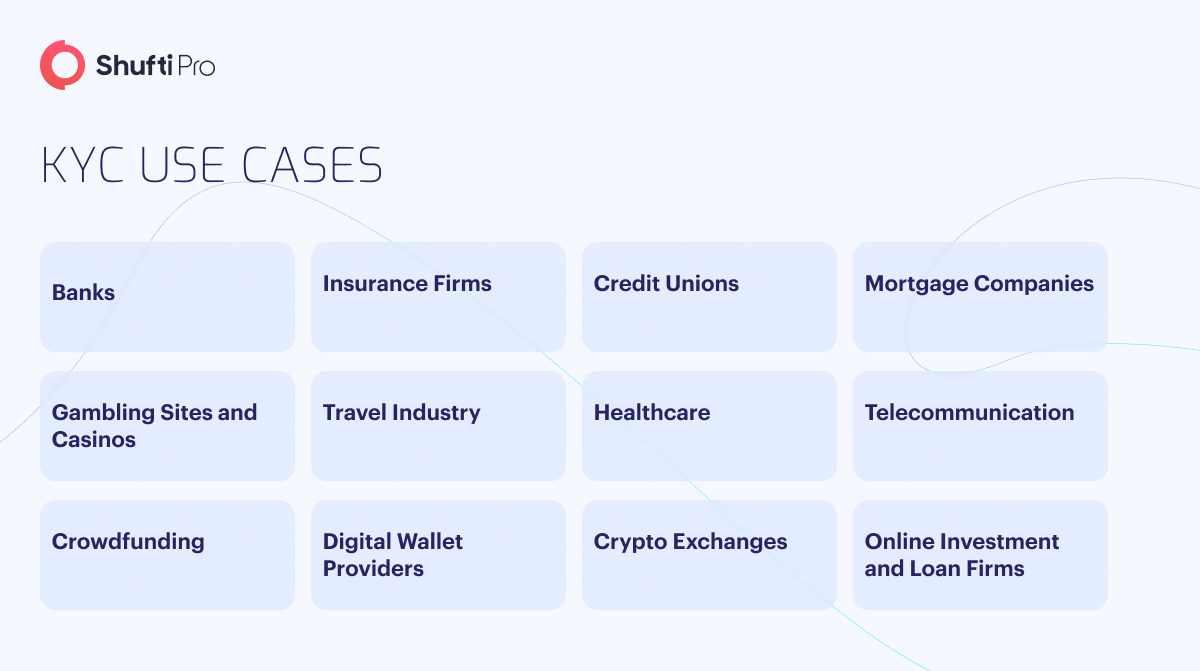A Basic Guide to Know Your Customer Online (2023 Update)

In our current digital landscape, where identity theft seems rampant, protecting personal information has become crucial. With cybercriminals relentlessly exploiting vulnerabilities, individuals find themselves at risk of severe financial repercussions. As society embraces the convenience of digital transactions and interactions, the pressing need for robust verification methods becomes increasingly evident. This is precisely where KYC online verification is pivotal in preventing identity theft and fraud.
Diving Deeper into KYC Verification
Know Your Customer (KYC) is a procedure businesses use to verify the identity of clients, evaluate their credibility, and monitor their financial activities. KYC online check enables institutions to ensure that their clients are who they claim to be. The requirements of firms may vary based on factors like account type, customer risk level, and geographical location. However, the primary goal of KYC policies remains consistent across the board, aiming to authenticate customers’ intentions and combat illicit activities.

The Process of KYC Verification
Data Collection: Numerous institutions gather fundamental customer data and information to initiate KYC procedures, preferably employing electronic identity verification methods. In certain jurisdictions, this process may be called a “Customer Identification Programme.” The essential elements of KYC data include names, locations, and Dates of Birth (DOB).
Verification: Once the essential customer data is obtained, banks and other businesses cross-reference it with various lists containing individuals associated with criminal activities. Such lists include those of high-risk jurisdictions, global sanctions and watch lists, Politically Exposed Persons (PEP) lists, and criminal registries of individuals involved in bribery and corruption.
Risk Assessment: Using the collected KYC information, banks and other financial firms evaluate customers’ potential risks regarding involvement in financial crimes. The outcomes of this assessment aid financial institutions in determining the customer’s risk profile and making predictions regarding their future economic behaviour. Banks can consistently monitor account activities by establishing a customer’s risk profile and effectively identifying unusual or suspicious transactions. Recommended by the Financial Action Task Force (FATF), risk-based KYC practices enable firms to balance their compliance obligations and available resources. Higher-risk customers are subject to more comprehensive KYC measures, whilst lower-risk clients may undergo minimal scrutiny that is deemed necessary. Risk assessments also enable financial institutions to compare clients’ economic activities with their peers. When clients deviate from expected financial behaviour, banks can utilise clients’ profiles sharing similar occupations, backgrounds, and industry connections to check the likelihood of criminal activities.
A Quick Look at the KYC Laws Across the Globe
Australia
The Australian Transaction Reports and Analysis Centre (AUSTRAC) is the government agency in Australia that detects, deters, and disrupts misuse of the financial system. All reporting entities should implement identification procedures for all clients before providing designated services.
Brazil
Since 2016, Brazil has implemented regulations to facilitate opening accounts through electronic channels. The Central Bank of Brazil has established an Open Data Portal to streamline the process of creating simplified KYC accounts and enhance data sharing. This portal enables customers with authenticated digital identities to open accounts quickly.
Canada
Regulated companies report any suspicious activity to the Financial Transactions and Reports Analysis Centre of Canada (FINTRAC). The Proceeds of Crime (Money Laundering) and Terrorist Financing Act (PCMLTFA) govern the federal KYC and Anti-Money Laundering (AML) regulations.
Europe
Three AML Directives (4AMLD, 5AMLD, and 6AMLD) have been enacted since 2016, expanding the scope of KYC to new sectors and emphasising the need for Enhanced Due Diligence (EDD). These processes involve collecting, verifying, and retaining Personally Identifiable Information (PII). Additionally, customers are screened against sanctions, PEP lists, and negative media coverage to assess associated risks. The European Commission has approved an action plan to introduce a comprehensive Union policy to prevent money laundering and financial crime, aiming for greater harmonisation of AML regulations.
India
The KYC framework in India derives from the Prevention of Money Laundering Act (PMLA) 2002. The government has issued procedural information in a separate document, “The PML Rules”. Regulatory bodies like the Securities and Exchange Board of India (SEBI), the Reserve Bank of India (RBI), and the Insurance Regulatory and Development Authority (IRDA) provide interpretations of these rules for the entities they oversee. The introduction of Aadhaar-based digital KYC enables financial institutions to authenticate the identities of Indian customers electronically.
Mexico
Mexico updated its AML law in 2019. According to the FATF, regulated entities are not allowed to open or keep anonymous accounts, except for deposits of Mexican pesos into individual accounts under specific thresholds to promote financial inclusion. Further, AML provisions and regulations differ based on the regulator and industry.
South Africa
The Financial Intelligence Centre Act (FICA) governs AML and KYC considerations in South Africa. The South African Government established the Financial Sector Conduct Authority (FSCA) as the regulator for financial institutions to enhance oversight over FICA.
UK
The UK has implemented comprehensive AML and KYC regulations. The regulator for financial services firms in the UK, Financial Conduct Authority (FCA), is known for its innovative and risk-based approach, focusing on outcomes rather than specific AML laws and rules.
USA
The United States has established KYC and AML regulations through key legislations, namely the Bank Secrecy Act (BSA) enacted in 1970 and the USA PATRIOT Act passed in 2001. These laws mandate that financial institutions adhere to a risk-based approach in verifying customer information, including name, date of birth, residential address, and identification number (typically a Taxpayer Identification Number like an SSN or EIN). The enforcement of these laws primarily rests with the Financial Crimes Enforcement Network (FinCEN) and other regulatory bodies such as the US Securities and Exchange Commission (SEC), Financial Industry Regulatory Authority (FINRA), US Commodities Futures Trading Commission (CFTC), and similar entities.
The Top Benefits of an Effective Online KYC Process for Businesses
KYC is an effective strategy for safeguarding businesses and their customers, preventing fraud, and combating corruption. To fully understand the purpose of this process, it is essential to understand its advantages.
1. Combats Money Laundering
KYC verification acts as a barrier, preventing individuals or organisations with criminal intentions from accessing a company’s services. Money launderers exploit security system weaknesses to conduct illegal operations whilst bypassing detection. For example, law firms may have operational gaps that money launderers can use, underscoring the importance of identity verification in preventing money laundering. It is crucial for businesses susceptible to money laundering to be aware of vulnerabilities and establish KYC compliance processes accordingly.
2. Prevents Fraud
The KYC process can aid government offices in tracking down tax evaders, a fraud where individuals deceitfully evade paying owed taxes. High-income individuals may occasionally use banks to conceal their income, enabling them to avoid government tax obligations. Integrating KYC procedures confirms and validates the identity of each customer, helping prevent fraud. Mandatory document and compliance checks collect and store consumer reference information, enhancing security measures.
3. Assists Lenders in Mitigating Risks
KYC protects all industry participants, including investment firms, who must adhere to KYC requirements, especially when significant sums of money are involved. Companies can mitigate financial risks associated with their commercial dealings with specific clients by complying with KYC regulations.
4. Offers Robust Customer Data Protection
In the healthcare industry, scammers exploit patient data to defraud healthcare insurance, evade bill payments, obtain medications fraudulently, fabricate illnesses, or impersonate others. Healthcare fraud has a significant impact, costing the US economy billions annually and affecting patients and healthcare workers, leading to wait times longer, heightened stress levels, and unnecessary suffering. Thus, KYC compliance is vital as it ensures in-depth identity verification, protecting client data.
5. Streamlines Processes
Continuous risk assessment monitoring through KYC compliance allows for identifying changes in customer-related information, such as monitoring financial transactions. Constant monitoring helps identify suspicious activities, strengthens AML efforts, maintains client identity verification, and ensures the legitimacy of commercial connections. Financial institutions recognise the importance of online identity verification as it improves workflow, boosts conversion rates by reducing onboarding friction, builds trust, and ultimately increases revenue.
6. Simplifies the Identification Process
Businesses can enhance fraud prevention by exercising increased vigilance when handling personal information. Those involved in payment management and healthcare provision should tighten their KYC procedures. Leveraging third-party verifiers can be advantageous in deterring fraud in different sectors.
How Can Shufti Help?
Shufti offers a robust KYC solution to 230+ countries and supports 150+ languages. Our robust identity verification solution verifies identities within seconds and mitigates the risk of identity theft and fraud. Not only it helps businesses keep scammers away, but it also helps them avoid heavy non-compliance fines.
Still confused about how KYC online protects your business from fraud and avoids hefty penalties?

 Explore Now
Explore Now













